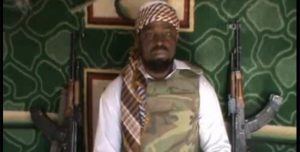 For the first time, the U.S. Department of State’s Rewards for Justice program is offering rewards for information on key leaders of terrorist organizations in West Africa: al-Qaida in the Islamic Maghreb (AQIM), the Movement for Unity and Jihad in West Africa (MUJWA);and the groups known as the Signed-in-Blood Battalion and Boko Haram.
For the first time, the U.S. Department of State’s Rewards for Justice program is offering rewards for information on key leaders of terrorist organizations in West Africa: al-Qaida in the Islamic Maghreb (AQIM), the Movement for Unity and Jihad in West Africa (MUJWA);and the groups known as the Signed-in-Blood Battalion and Boko Haram.
The Secretary of State has authorized rewards of up to $5 million each for information leading to the location of AQIM leader Yahya Abu el Hammam and Signed-in-Blood Battalion leader Mokhtar Belmokhtar; rewards of up to $3 million each for information leading to the location of AQIM leader Malik Abou Abdelkarim and MUJWA spokesperson Oumar Ould Hamaha; and a reward of up to $7 million for information leading to the location of Abubakar Shekau, the leader of Boko Haram.
Yahya Abu el Hammam serves as a senior leader of AQIM, planning attacks and kidnappings in North and West Africa. Hammam reportedly was involved in the 2010 murder of an elderly French hostage in Niger.
Mokhtar Belmokhtar, previously a leader of AQIM, is the founder of the Signed-in-Blood Battalion, also known as the al-Mulathamun Battalion. It conducted the deadly January 2013 attack on a gas facility in In-Amenas, Algeria, where at least 37 hostages, including three U.S. citizens, were killed.
Malik Abou Abdelkarim is a senior leader within AQIM. Under his command, AQIM fighters have conducted kidnappings and terrorist attacks in North and West Africa.
Oumar Ould Hamaha, previously a member of AQIM, is now the spokesperson for MUJWA, an AQIM offshoot. As a member of AQIM, Hamaha participated in kidnappings of foreigners for ransom, including the kidnapping of a Canadian diplomat from Niamey, Niger, in December 2008.
Abubakar Shekau is the leader of Nigeria-based, Jama’atu Ahl as-Sunnah il-Da’awati wal-Jihad, more commonly known as Boko Haram. The group is responsible for the August 2011 vehicle-bomb attack on a United Nations facility in Abuja, Nigeria, which killed at least 23 people and injured 80.
More information about these individuals is located on the Rewards for Justice website (www.rewardsforjustice.net) or on Twitter: @Rewards4Justice. We encourage anyone with information on these individuals to contact the Rewards for Justice office via the website, e-mail (RFJ@state.gov), phone (1-800-877-3927), or mail (Rewards for Justice, Washington, D.C., 20522-0303, USA). All information will be kept strictly confidential.
The Rewards for Justice program is administered by the U.S. Department of State’s Bureau of Diplomatic Security. Since its inception in 1984, the program has paid more than $125 million to more than 80 people who provided actionable information that put terrorists behind bars or prevented acts of international terrorism worldwide. Follow us on Twitter at https://twitter.com/Rewards4Justice.


Be the first to comment